While few seem to have grasped the import of Bishop Schneider’s new catechism just yet, certain voices in the Land of Talking Heads have caught on; and, as predicted just weeks ago, “this book will do more to highlight the Catholic Brand War than anything hitherto in print.”
Now, what could be more mundane and quotidian than a Catholic bishop in a faraway diocese issuing his own summary guide “to the changeless teaching of the Church”? For the Catholic, what could possibly be controversial about such an undertaking?
For some, apparently quite a lot.
After another careful read, we will here maintain that every Catholic should own a copy of Credo; not only to learn the true Faith, but to secure Hard Evidence of its being officially and authoritatively conveyed in our disastrous era.
What follows here are a few reactions of a rather different perspective, which were shared with us at WOR. The authors are apparently of the “influencer” type:
An “evil heretic”! Astounding.
A few decades of the multivalent use of an undefined term like human dignity, and we must now bring forth the tribunal and the gallows! Dignity has become a formal dogma, and its denial (rejection? misapplication?) makes one, quite simply, an evil heretic.
No, scratch that; an unspeakably evil heretic:
Never mind discerning how the author himself chooses to employ the multivalent term in question; his seeming-assertions are Wrongspeak, really bad, dangerous, false, and he must be punished!
One is here reminded of the term “kulak,” that favorite word-weapon of Russian Communists a few generations back. One was never entirely certain what the ambiguous term meant, but you’d better not be caught being one. (Incidentally, Bishop Schneider had family members murdered by such — may they rest in grace and eternal peace.)
Another reaction to Credo, even more intriguing:
Yes, the author lives in a majority-Muslim country. Such a situation would seem to demand far greater zeal and clarity in proclaiming the truth of Christ on this topic, no? Popes and Catholics worldwide did regularly pray “for those involved in the darkness of idolatry or of Islamism,” after all; and that until quite recently. Indeed, many still do. Do we not love those in the error of Islam anymore, nor wish them to be saved?
But here we must press the question: Does Credo in fact contradict Vatican II or the Catechism of the Catholic Church (in its latest updated edition, of course)? We were taught that the latter two defined no new doctrines, but simply restated what the Church always taught — something Credo likewise claims.
Now, for the Church, “what Islam teaches” is of no consequence, dogmatically speaking. But inasmuch as Credo’s presentation of what Islam is not (i.e., supernatural faith, adoration, means of grace, etc.) is found among Catholic theologians, saints, popes, catechisms, etc…. and Credo is the work of a Catholic bishop in good standing… and canonically maintained as an authentic expression of Catholic doctrine (even under imprimatur)… is there really a mutually exclusive scenario at hand here?
Writ small: Whatever happened to the hermeneutic of continuity?
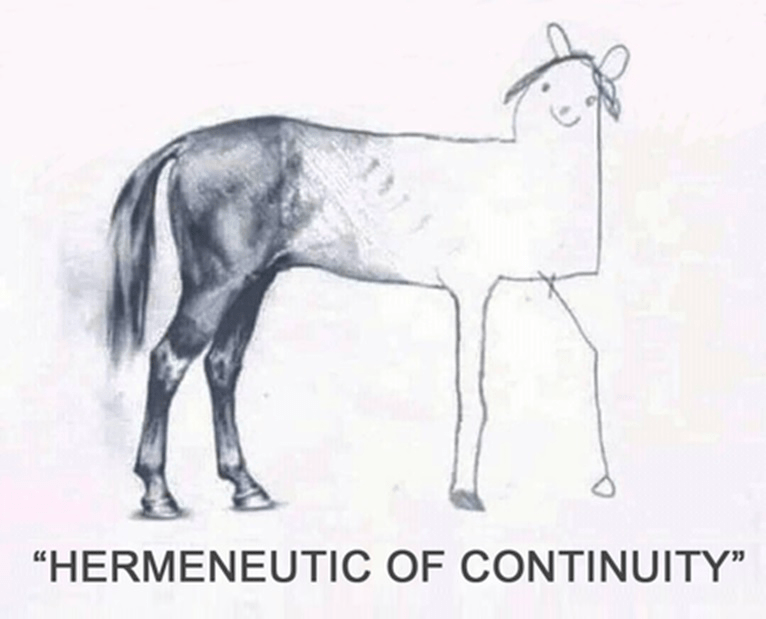
Alas, we cannot tarry with such considerations.
Another fascinating response to Credo:
Catch that?
The same conception of post-Pentecost Judaism taught by Apostles, Fathers, Doctors, Saints, popes, councils, and theologians of the Church — one held by Catholics around the world for about nineteen centuries — actually rendered all those people heretics. In fact, their proclamations of salvation in Christ alone made them hateful to boot. Saint Paul must repent!
Truth is heresy. Love is hate. Yesterday’s orthodoxy is “hateful, heretical, trash” today.
Now, the above pundits should be thanked for not entirely abandoning reason: they still hold to the law of Non-Contradiction. And if there is one thing they get resoundingly right, when comparing Credo to most any religious education manual *of the past sixty years*, it is undeniably this: one of these things is not like the other.
Meme Roundup
Now, as expressed before, there is so much soundbite-sized truth packed into Credo that it naturally lends itself to the “art of the meme” — and, as there aren’t many teaching tools better at illustrating the radical divergence of authentic Catholicism from its counterfeits, we aim to spotlight some of them here.
Therefore, although more are still circulating (and more will come, no doubt), it’s time for our first Credo Meme Roundup, with a few comments.
Many thanks for all submissions, and enjoy!
First, a gallery of sundries:
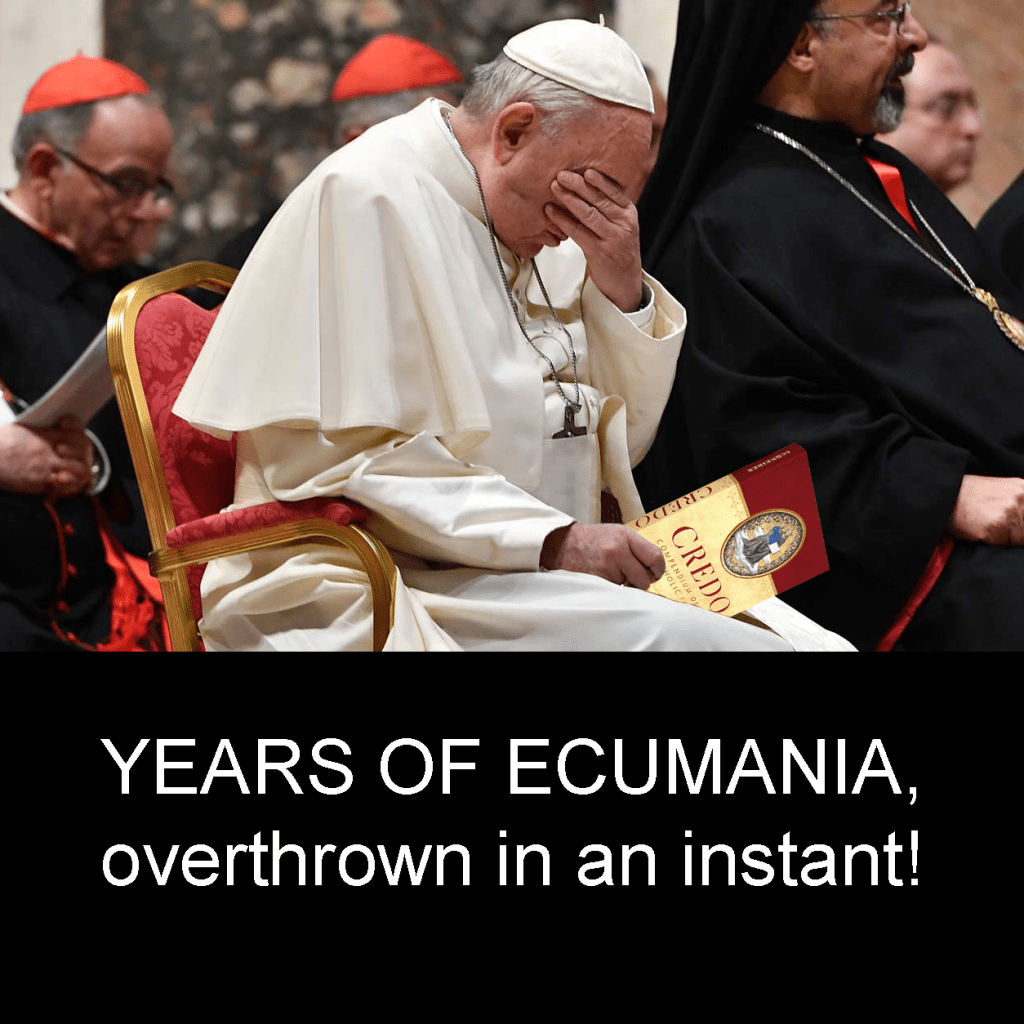





Now, a thematic gallery on some of Credo’s content, compared to the current SinNod of Nonsynse and Sycophancy, its contemporaneous EcoCult Exhortation, and the wider push to legitimize unnatural relations:
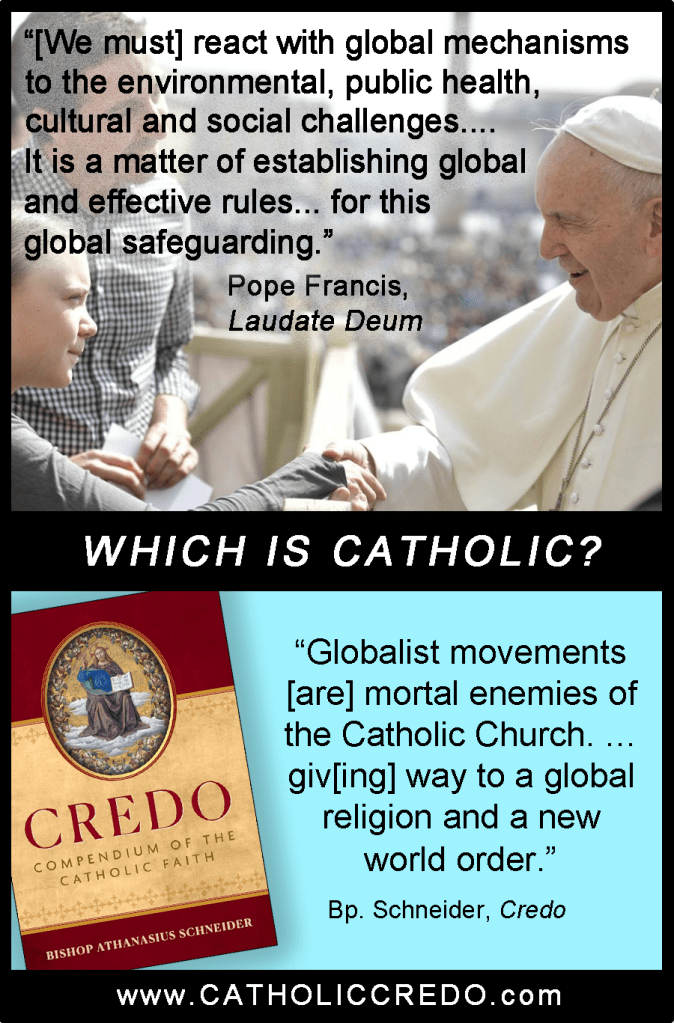

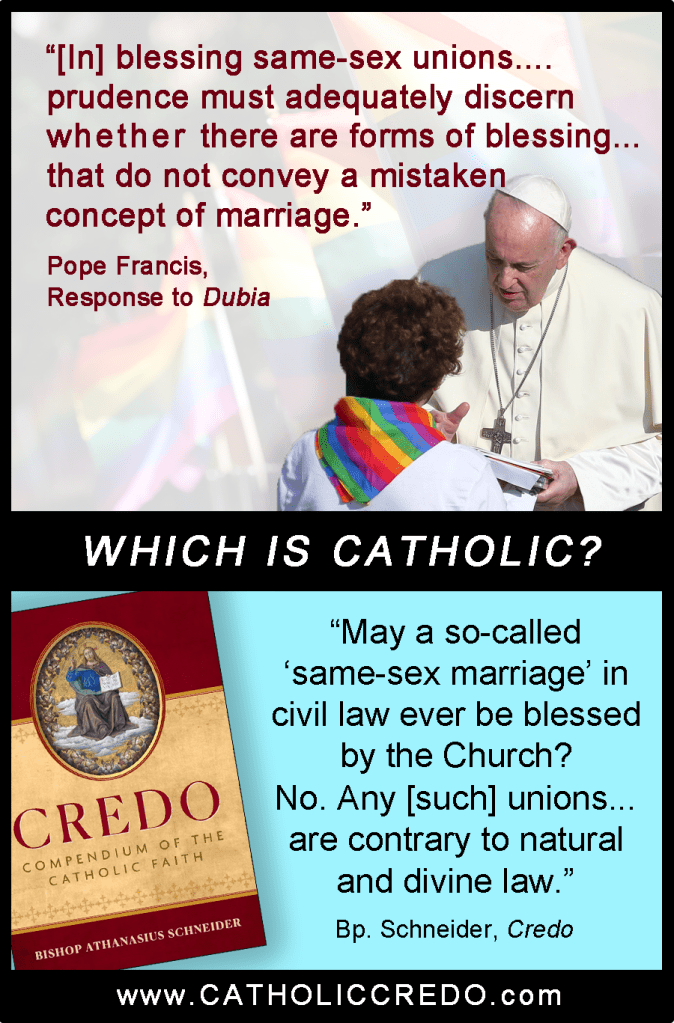



Another themed gallery, with rather different takes on various doctrines:


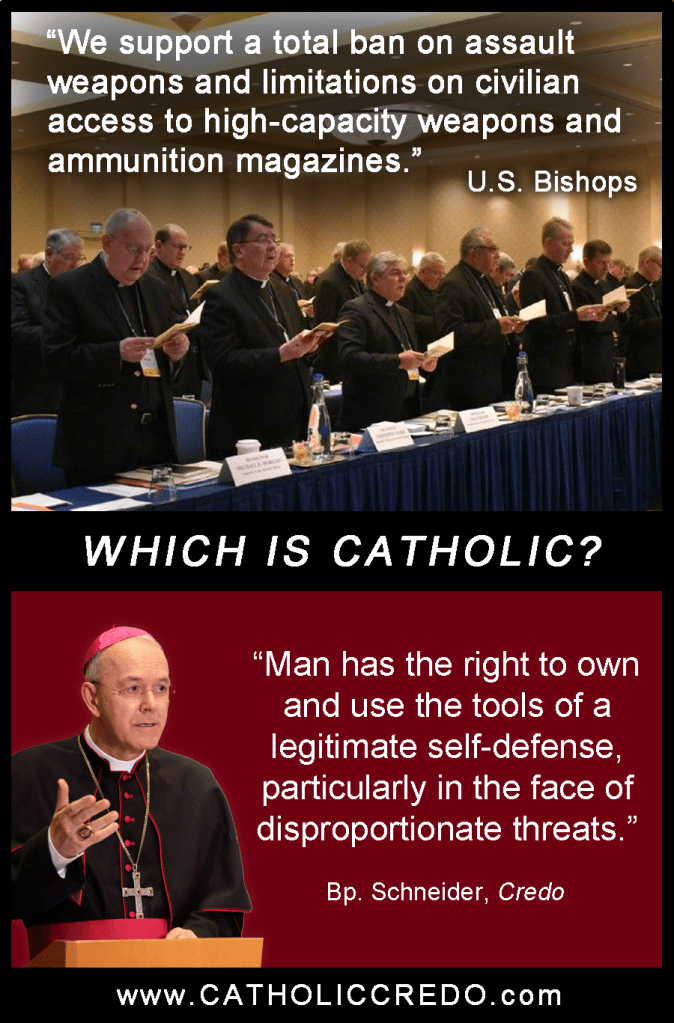


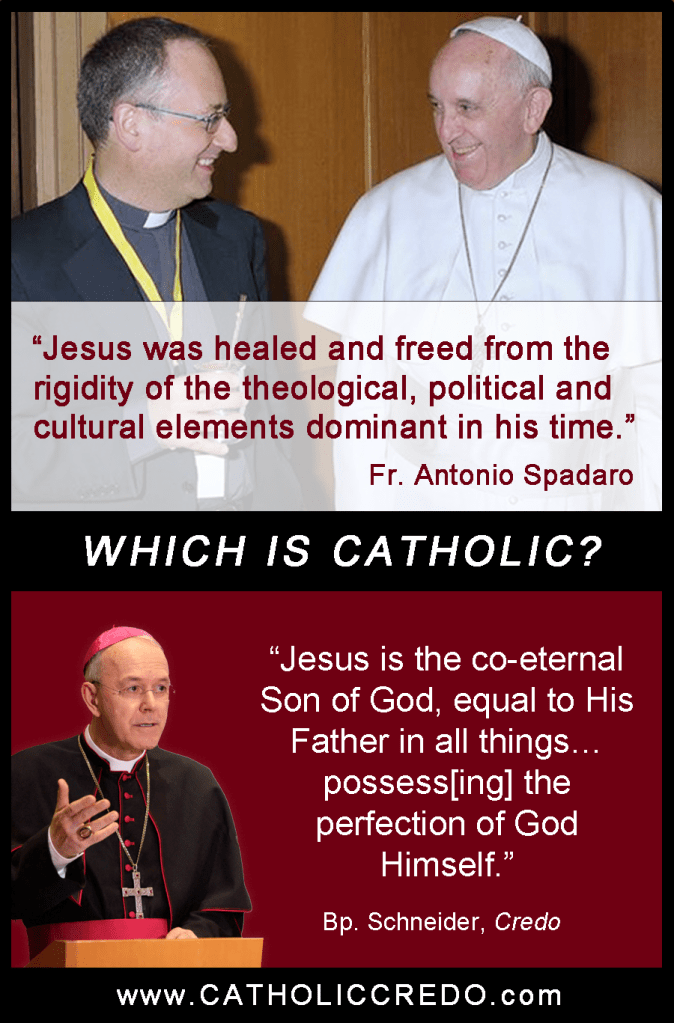


Remember, there is no “conservative/liberal” in the Church. There is true or false. There is Catholic, or error.
And while there are some matters that have not been solemnly defined by the Church and upon which the faithful may reasonably differ, the devout always endeavor to know (particularly in the moral sphere): How best may I serve God now, as He desires? What does Jesus Christ wish me to do, and how can I know this with certainty? If His Church has taught this always and everywhere, where can I access this teaching?
Credo has finally recast the progressivist narrative of “this is what the Church teaches now,” and compelled a conversation over what she has taught always, and in fact still teaches from the ranks of the episcopate: For, from the pen of a living bishop, Credo recapitulates the authentic teaching of the Church as if the last sixty years of madness had already passed, like a bad dream in the night.
In brief: Credo is Catholic doctrine. If not, says who? Since when?
Send Credo memes to your friends and family, priests and bishops! Or, better yet, send them a copy of the book itself.
The soul you save may be your own…
…and Bravo the Restoration!
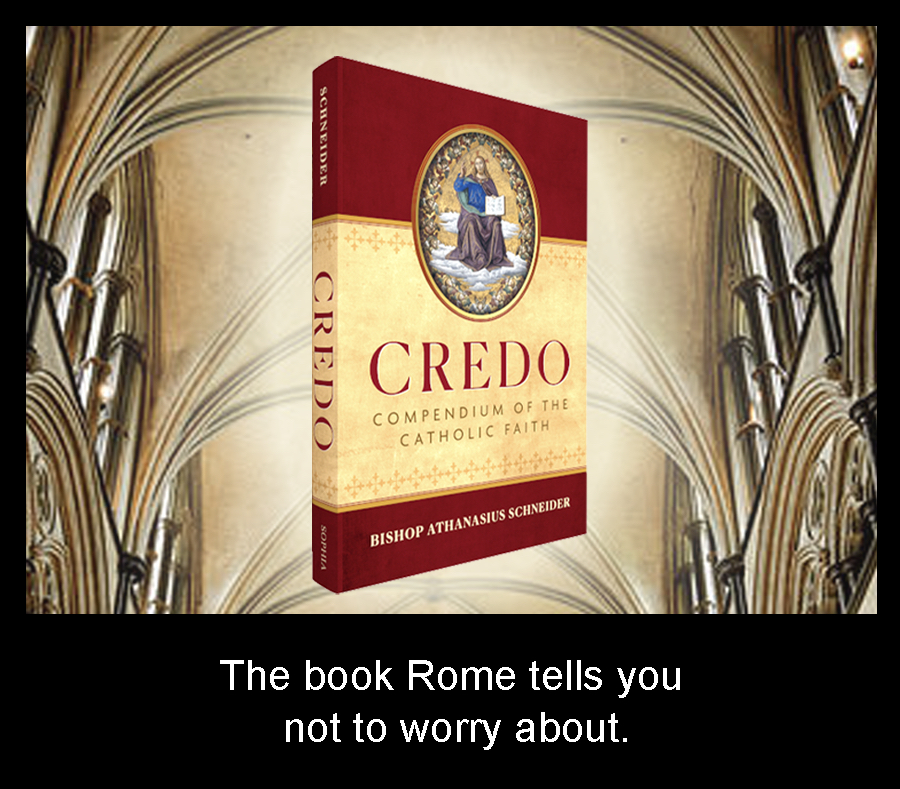



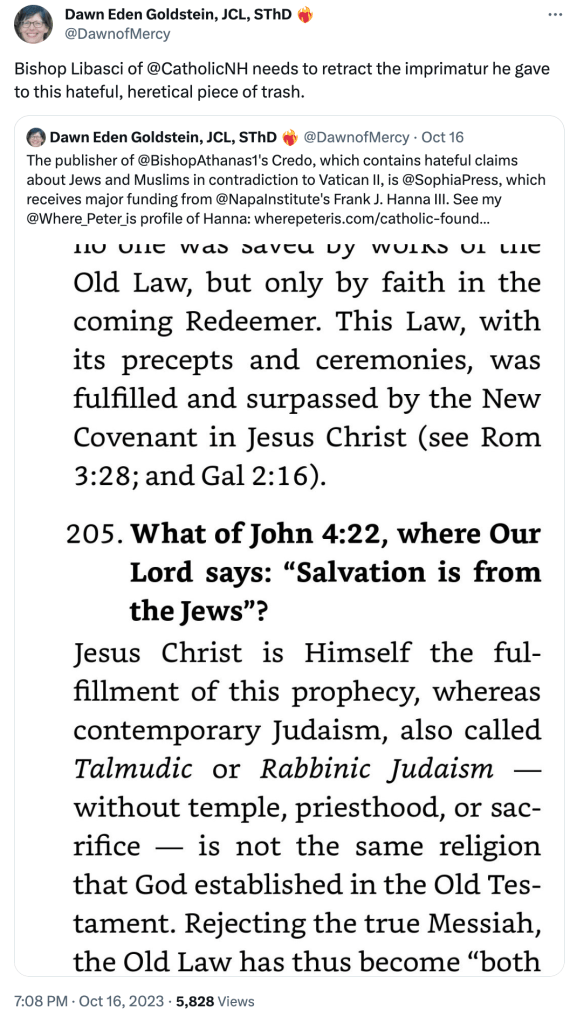
I have a copy but have not managed to read it all and had heard some adverse comments.
Thanks very much for the review and the quotations from Credo..
Reading excerpts gives me the same leap of the heart which I found on first reading the CCC.
warmest regards,
Karen in Cambridge, UK
LikeLike